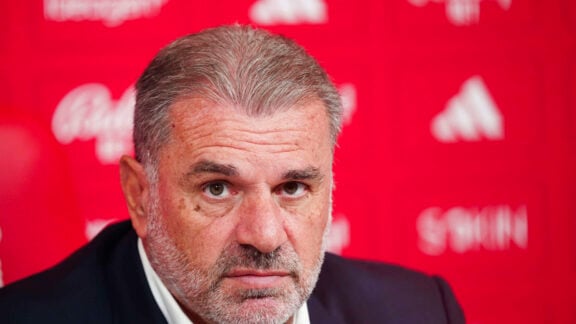Has Bill Shorten been “feeling the Bern”? The Labor party’s call for a royal commission into banks and financial services seems to be torn out of the pages of the Bernie Sander’s political bible, the one that he’s been preaching throughout his impressive campaign. Given that Australia seems to be entering a long election campaign, faced with a ruthless 24-hour news cycle, the ALP managed to hijack the political agenda, for the time being, urging the government to respond with a pledge to give more power and resources to the Australian Securities and Investments Commission.
The move has been criticised as “lukewarm”, given that the corporate regulator has not succeeded in addressing the serious scandals that have erupted in the banking sector recently, signaling the Coalition’s first defeat in the campaign.
Banks, of course, are an easy target. People don’t seem to like them much, nowadays, given the way they seem to gouge fees, their involvement in corruption scandals and their billions in profits, that seem to be in discordance with the uncertainty still looming over the global economy. Synonymous with “greed”, the banking sector has been alienating itself from the consumers – and for once, politicians seem to be taking notice.
In his campaign for the Democratic Party nomination for the upcoming presidential elections in the US, liberal senator Bernie Sanders has never missed a chance to attack Wall Street, promising to break the banks that were long – thought as “too big to fail”, and exposing his opponent, Hillary Clinton for her close ties to the financial establishment. After all, it was Bill Clinton who single-handedly paved the way for the Global Financial Crisis, by repealing the 1933 Glass-Steagall Banking Act that had effectively separated commercial banking from investment banking, in the wake of the 1929 stockmarket crash, allowing for investment banking firms to gamble with their depositors’ money that was held in affiliated commercial banks.
In a society plagued by rising inequality, the political discourse cannot avoid verging to an “us vs them” theme. Apparently, Bill Shorten has been watching; by steering the agenda to the scandal-ridden banking sector, he caused a subtle, yet not insignificant blow to Malcolm Turnbull, implying the PM’s past as an investment banker.
No-one would have expected this to happen, a few months ago, when talk of a double-dissolution and early election began. The Coalition seemed to be facing an easy campaign and the political agenda was expected to be dominated by issues like the GST hike, or even marriage equality. By steering political discourse to the banking sector, the ALP brought politics to its home turf, forcing the Coalition to a shaky start of the election campaign.
Does this mean that the Labor is trying to reclaim its role in Australian society, remembering its past as a left-of-centre party that advocates for the rights of workers and the middle class? So far, Australia has been the only developed country to have missed the left’s comeback. Even the Green party, a long-time champion for progressive policies, seems to be focusing in the culture of consensus that has dominated Australian politics for years.
But globally, things have been changing. Even the IMF has addressed the issue of inequality as a pressing one, stressing out the need for wealth redistribution. With the climate change urging economies to adjust, the International trade deals affecting work relationships and the social welfare state being under threat in most countries, there’s ample room for the left to present its arguments and – more importantly – to come up with new ones.
Bernie Sanders in the US has managed to do just that. Even if he fails to win his party’s nomination, he has pushed the agenda to the left, in accordance with the voices of the struggling majority. The rise of Jeremy Corbyn as the leader of the Labour Party in the UK seems to be doing the same. Both men have been under attack by the mainstream media, represented as relics of a long-gone era, out of touch with reality and political pragmatism.
But they’re not alone; Justin Trudeau, in Canada, has risen to become a champion of progressive politics. Though more centre-leaning than Sanders or Corbyn, he is trying to mend his country from the effect of his right-wing predecessor’s policies. Back in Europe, left wing parties are on the rise, as the continent is trying to cope with financial instability, augmented by the refugee crisis. Even Syriza, for all its spectacular failure to deliver on his promises and apply any kind of progressive domestic policy that would benefit Greece’s struggling middle and lower classes, is still seen as a key factor that could affect a change in European politics, along with Podemos in Spain and the Socialist Coalition in Portugal.
Centrists all over the world have been dismissing this agenda as ‘populist’, issuing stern warnings of recklessness. But what centrists fail to see is that the mere existence of a centrist policy of consensus, is the outcome of societies with a strong, broad middle-class. When this middle class is asked to pay the bill for the conduct of greedy banks, tax-avoiding multinationals and corrupt governments, there’s little room for consensus. How will this affect the Australian election campaign? We have seven weeks ahead of us to see.








